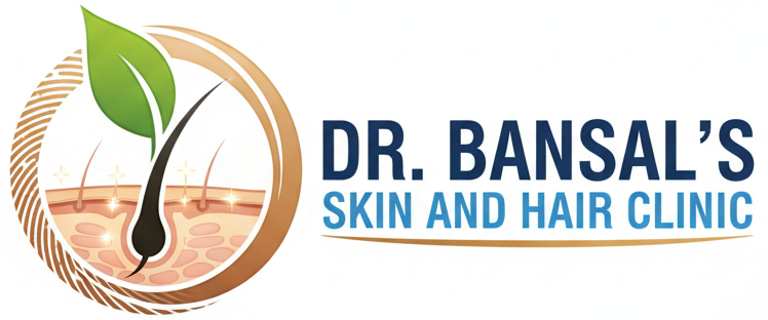Herpes Zoster Treatment in Indore
Dr. Bansal's Skin Clinic, Indore
About herpes zoster: Shingles
Herpes Zoster, commonly known as Shingles, is a viral infection caused by the Varicella-Zoster Virus, known as VZV, which is the same virus responsible for chickenpox.
After recovery from chickenpox, the virus remains in the nervous tissues and lies dormant, to emerge in later years as shingles when immunity wanes.
It usually causes a painful blistering rash on one side of the body or face.
Description / Symptoms
Shingles usually affects one area supplied by a nerve, known as a dermatome.
Common symptoms include:
Burning, tingling, or shooting pain in a localized area
a red rash that follows a few days of pain
Fluid-filled blisters that crust over in 7–10 days
Fever, headache, and fatigue in some cases
Postherpetic neuralgia: ongoing nerve pain after the rash has cleared
Casual contact does not spread the infection; direct contact with fluid from the blisters is required to pass the chickenpox virus to a person who has never had chickenpox or who isn't vaccinated.
Treatment Options
Prompt treatment helps shorten the duration and reduce complications.
1. Antiviral Medications:
Acyclovir, Valacyclovir, or Famciclovir - best started within 72 hours of rash appearance
Decreases viral activity and intensity of pain.
2. Pain Management:
Over-the-counter painkillers include paracetamol and ibuprofen.
Prescription medications for nerve pain include gabapentin or pregabalin.
Topical creams for itching and soothing, like calamine lotion or lidocaine patches.
3. Skin Care:
Keep the rash clean and dry to avoid bacterial infection.
Wear loose-fitting clothes to prevent irritation.
4. Care of Postherpetic Neuralgia (PHN):
May require special nerve pain medications or therapies.
This is because it's important to always see a dermatologist or physician for proper evaluation and prescription of antiviral medication.
Prevention Tips
Get vaccinated with the Shingles (Zoster) vaccine. Vaccination is recommended for all adults older than 50 years or when immunity is weakened.
Control stress and keep the immune system healthy.
Eat a well-rounded diet filled with vitamins and minerals.
Get adequate rest to maintain immunity.
Avoid close contact with people who haven't had chickenpox or the vaccine until your blisters have scabbed.
Treat early: Early antiviral therapy can prevent complications.
What NOT to Do
❌ Don't scratch or burst the blisters, as it can result in scarring or secondary infection.
❌ Don't ignore early pain or rash - early treatment is critical.
❌ Don't share towels, bedding, or clothing during the outbreak. ❌ Avoid application of harsh creams, oils, or herbal remedies without medical advice. ❌ Seek medical attention if pain persists well after the rash has healed.
Care
Dr. Shreyas Bansal has over 46 years of experience in promoting hair health and wellness. At Dr. Bansal’s Homeopathy Clinic, located at 2 Manish Bagh, Sapna Sangeeta Road, Indore, we provide personalised care to strengthen your hair, improve scalp health, and restore confidence naturally.
Health Hairs AT
Beauty
+91 9926120111
© 2025. All rights reserved.
